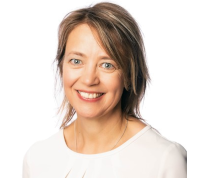Independent Inquiry into Child Sexual Abuse - Internal Review
The Independent Inquiry into Child Sexual Abuse has had a tumultuous start. Now, two and half years later, we consider the Chair's report on progress so far.
It has been difficult to ignore the ill-fated Inquiry in recent months.
More than 30 members of the Inquiry's staff have now quit, including three Chairs, its Lead Counsel, his deputy, and the head of one of its investigations. One survivors' group has withdrawn from the Inquiry and another has boycotted the first seminar. The predecessor Chair has raised concerns about the scope of the Inquiry, its timescale and its resources, and the Home Affairs Select Committee has criticised its lack of transparency and progress.
In an attempt to address these concerns, current Chair, Professor Alexis Jay, has issued a statement and has published a review of the Inquiry's cultures and working practices. This review provides a useful insight into the Inquiry's progress and future direction.
Progress to Date
The Inquiry has made over 250 formal requests for evidence from 120 different institutions, of which nearly a fifth (22) are residential schools. It has received 86,000 documents spanning more than 750,000 pages.
It has granted 205 applications for Core Participant status and has invited over 400 victims and survivors to share their experiences in the Truth Project. It has conducted 11 preliminary hearings across seven of the investigations and recently hosted its first seminar.
Scope of the Inquiry
The Terms of Reference, criticised by some as being too broad, are to remain unchanged. The Chair is determined to expose past failures, but the Inquiry's work will be rebalanced to ensure that appropriate recommendations are made for the future.
These recommendations will be aligned along four themes:
- cultural: the attitudes, behaviours and values within institutions that prevent us from stopping child sexual abuse
- structural: the legislative, governance and organisational frameworks within and between institutions
- financial: the financial, funding and resource arrangements for relevant institutions and services
- professional and political: focusing on the leadership, professional and practice issues for those working or volunteering in relevant institutions
The Inquiry will not carry out traditional investigation into every institution which faces allegations of sexual abuse, but "will do for some", raising the possibility of detailed and potentially damaging public hearings for some schools.
The Future for Residential Schools
The Inquiry's focus on residential schools will be "forward-looking" and will assess "contemporary practice". The Chair has said that she will hold public hearings on specific case studies. The subjects of these case studies have not been announced.
The Inquiry will host seminars for "self-selected schools" who wish to participate in them, and will carry out primary research projects by surveying schools and interviewing victims and survivors, parents, pupils and staff. These are opportunities for everyone invested in education to voice general concerns and to suggest practical solutions for the future, but also pose a risk that they will offer vociferous complainants a mouthpiece to publicly voice their concerns.
Research projects for this investigation are scheduled to take place in 2017/18. Residential schools do not yet feature in the Inquiry's programme of public hearings and seminars, and we do not anticipate that they will take place until after publication the Inquiry's interim report in April 2018.
It is still hoped that the Inquiry will deliver its final report and recommendations in 2020.
How We Can Help
We are already helping a number of schools which have received specific requests for information from the Inquiry.
For those who have not been contacted by the Inquiry direct, the priority will be to ensure that current safeguarding procedures and practice are fit for purpose. We will be pleased to help with this. We can also help with considerations about whether or not to self-report, the school's safeguarding compliance history and how to deal with historic allegations.
OnStream contains further information about the Inquiry and the steps we recommend schools take to prepare, as well as other safeguarding resources. For regular Inquiry updates, subscribe to our IICSA newsletter.
